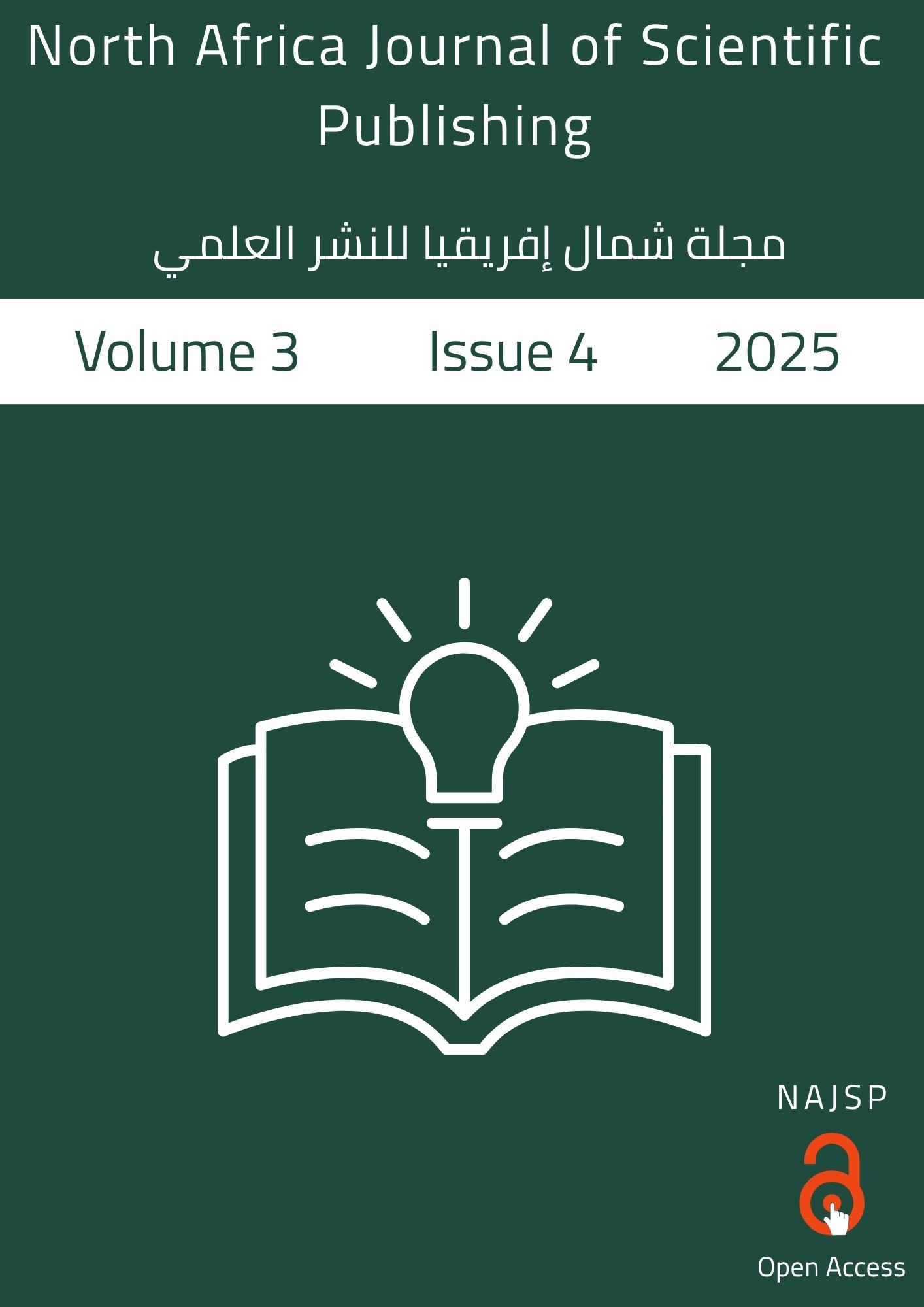العلامةُ والتمثيلُ الثقافيّ في قَصيدةِ (قَدرُ المَواهِب) للشاعر خليفة التليسي "مقاربة سيميائية ثقافية"
DOI:
https://doi.org/10.65414/najsp.v3i4.673الكلمات المفتاحية:
العلامة المفتاحية، العلامات اللغوية، تمثّلات الوطن، اللغة كمقاومة ثقافيةالملخص
يسعى هذا البحثُ الموسوم بـ "العلامة والتمثيل الثقافي في قصيدة (قدر المواهب)" للشاعر خليفة التليسي" مقاربة سيميائية ثقافية"، إلى مقاربة القصيدة بوصفها خطابًا ثقافيًا، انطلاقا من فرضية أنَّ معنى القصيدة ناتجٌ عن فضاءٍ دلالي وثقافي متداخل، ويُبنى البحثُ على تساؤلات عديدة، منها كيف يمكن للقصيدة أن تُقرأ بوصفها بنية دلالية مشحونة بثقافة؟ وكيف تتفاعل العلامةُ مع النسق الثقافي في القصيدة؟ ويكتسبُ البحثُ أهميته من محاولة مقاربة قصيدة (قدر المواهب) للشاعر خليفة التليسي، مقاربة متسعة، تجمع بين السيميائي والثقافي؛ فتعنى بالعلامة الشعرية بوصفها وحدة دلالية، وتعتمد التأويل الثقافي لتفكيك هذه العلامة، وفهم أبعادها المتعددة وحمولتها الثقافية وسياق إنتاج القصيدة، بهدف الكشف عن العلامة السيميائية في القصيدة، وتفسيرها في ضوء السياق الثقافي والاجتماعي؛ ولتحقيق ذلك وُظِف المنهج السيميائي في تحليل نظام العلامات اللغوية في القصيدة، والمنهج الثقافي في الكشف عن التمثلات الثقافية داخل هذه العلامات.








